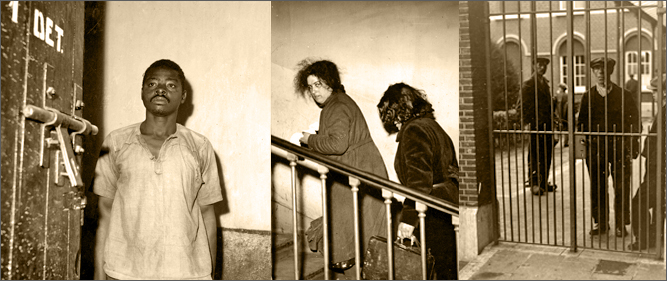
WP2: Justice and the Citizen
The research conducted within WP2 approaches justice-society relationships from the viewpoint of the citizen, as both subject and client of legal and judicial systems. Following a “bottom-up” perspective, citizens are not merely viewed as passive subjects meekly acquiescing in state-practised repression; rather, they are forces that react or turn to judicial institutions, in order to defend or serve their own interests. This WP focuses in particular on citizen involvement in the functioning and reform of legal and penal systems and on citizens’ experience and attitudes towards police and judicial practices and punishment. Three research axes are prioritized:
- The experiences and attitudes of citizens as clients of justice, which is related to the issues of citizens’ trust or distrust in the judiciary, citizen involvement in the administration of justice, and public influence on judicial reform;
- The (re)actions of citizens belonging to stigmatised target groups, the subject of specific police, judicial and social policies, including f.e. young offenders and “difficult” detainees. Particular attention is paid to their daily interactions ‘on the ground’ with regulatory instances and the impact of judicial and police intervention on their careers of stigmatisation and confinement;
- The experiences of ordinary citizens in their dealings with law and justice in particular contexts of crisis, conflict and reform, in times of revolution, colonisation or global conflicts.
Coordinators: Jenneke Christiaens & Nathalie Tousignant
Partners involved: UCL, UGent, VUB, UNamur, USaint-Louis, ULg, KULeuven, CHJ (Lille 2), Cesdip (UVSQ)
Research projects
- Tom Bauwens, Experiencing the Local Governance of Security
- Emmanuel Berger, The Criminal Jury in England and France in the Age of Revolutions. Comparative Study of European Popular Justice
- Lucie Castaigne, The Belgian Judicial Cases through Television Broadcasting from its Beginning to the Dutroux case (1960-1996)
- Anneke Evenepoel, The Preventive Turn in the Policing of Urban Space, as Experienced by the Citizens
- Benoît Henriet, Bleeding the Rainforest. Law, Land and Labour in the Leverville Oil Palm Concession, Belgian Congo, 1910–1940
- Ilse Luyten, Voices from Inside the Juvenile Justice System and Beyond. Pathways and Life Experiences of Juveniles after Youth Justice Intervention
- Bérengère Piret, Criminal Justice in Belgian Congo. The District Court of Stanleyville, 1934–1958
- Antoine Renglet, Police Forces in Belgian Cities from the End of the Ancien Regime to Napoleon, 1780–1814
Associated research projects
- Mattias De Backer, Young people’s thirdspaces: An ethnography of hanging out in Brussels (VUB)
- Sofie De Bus, Girls and boys in the juvenile justice system: specific problems, specific approach? (VUB)
- Esther De Graaf, Minors behind bars: between resistance and rights (VUB)
- Camille Claeys, Police interrogation of juvenile offenders (VUB)
- Chaim Demarée, The Police Occupational Culture: Between Reactivity and Creativity (VUB)
- Amandine Dumont, Individual Trajectories and Collective Profile of a Profession: The Belgian Magistrates based in Leopoldville (1920-1962) (UCL)
- Yana Jaspers, Pathways of transferred juvenile delinquents: A qualitative study about the consequences of transfer on criminal justice pathways into (young) adulthood (VUB)
- Gertjan Leenders, Denunciations in Belgium during both World Wars: Practices and Perceptions in a Comparative Perspective (UGent)
- Pieter Leloup, The development of the private security industry in Belgium (1907-1990): A historical-criminological perspective on contemporary changes in security and crime control (VUB-UGent)
- Veerle Massin, Interned Women and Society. Understanding Psychiatric Commitments (Involuntary Admissions) in Belgium (1910–1970) (UCL)
- Lucas Melgaço, Public Demonstrations in the Information Age: The Role of Youngsters, Social Networking Sites, Smartphones and Surveillance (VUB)
- An Nuytiens, Delinquent Girls become Adults: A Qualitative Analysis of their Trajectory towards Desisting or Persisting Delinquent Women (VUB)
- The Changing Relationships between Police and Population, 19th & 20th centuries – Research Collaboration VUB-UGent between Prof. Margo De Koster, Prof. Antoon Vrints & Drs. Barbara Deruytter
Some realisations of WP2
- International conference Policing Empires : Social Control, Political Transition, (Post)Colonial Legacies (Brussels, 12-13 December 2013, co-organised with WP3)
- Study day Police and Public Order in France and England (1750-1850). Perspectives from Current Historiography (Paris, 4 April 2014)
- Study days Review and Empires – About Colorev Project (Lille and Brussels, 16-17 October 2014, co-organisation USaint-Louis-Lille 2)
- WP2 international conference Experiencing Justice: Researching Citizens’ Contacts with Judicial Practices (Brussels, 5-6 March 2015)
- International workshop Forced and Coerced Labour: Comparing Colonial Spaces and Global Conflicts (Brussels, 19 March 2015) (co-organised with WP3)
The Interuniversity Attraction Pole P7/22 "Justice & Populations: The Belgian Experience in International Perspective, 1795-2015" (BeJust 2.0) is part of the Interuniversity Attraction Poles Programme Phase VII (2012-2017), financed by the Belgian Science Policy Office of the Belgian State.
The IAP VII/22 Justice & Populations www.bejust.be is the outcome of a collaboration between the Cegesoma, the IAP coordination team (CHDJ-UCL) and the Royal Military Academy. Design: tangografix. Powered by Drupal
